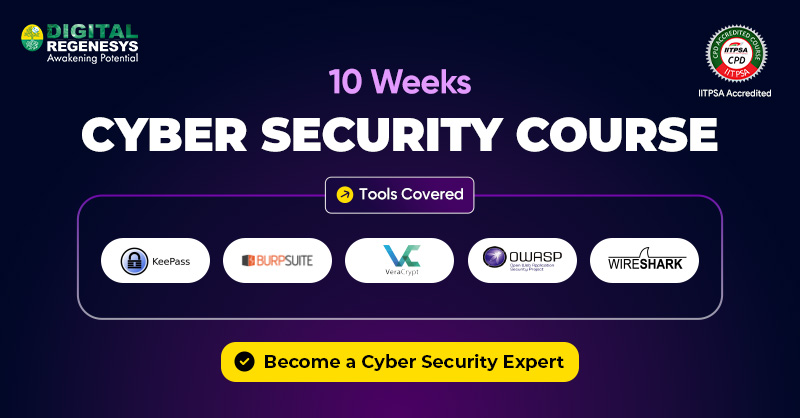Cybersecurity Career in South Africa

Cybersecurity is no longer a niche; it is the backbone of modern business operations. Organisations in South Africa are increasingly investing in protecting their data, networks, and digital assets, creating one of the most in-demand career paths today.
A cybersecurity career in South Africa offers not just job security but also opportunities for growth, leadership, and a chance to make a tangible impact on organisations.
Cybersecurity professionals are expected to understand threats, implement protection strategies, and respond to breaches while also aligning their work with business goals. Success in this field requires a combination of technical expertise, strategic thinking, and professional networking.
In this article, we’ll share eight insider facts and tips for building a successful cybersecurity career in South Africa. From understanding career roles and certifications to hands-on experience, soft skills, networking, specialisation, and continuous learning, this guide will help aspiring professionals make informed decisions and thrive in a dynamic, high-demand field.
Cybersecurity Roles Are Diverse
A common misconception is that all cybersecurity jobs are the same. In reality, the field offers a wide variety of roles. You could start as a security analyst, monitoring systems for threats, or as an incident responder, managing breaches as they occur.
Other opportunities include penetration tester, ethical hacker, security architect, or cybersecurity manager. Each role demands unique skills and experiences. Understanding the diversity of roles helps you target positions aligned with your interests, strengths, and career goals, making your cybersecurity career in South Africa more focused and rewarding.
Key Takeaways:
- Explore roles like analyst, ethical hacker, architect, or manager
- Align career choices with personal strengths and interests
- Understand role-specific skills for targeted growth
Get insights on How Do I Start A Career In Cyber Security?

How Certifications Open Doors?
Certifications are more than a resume boost; they validate expertise and demonstrate a level of expertise. Globally recognised certifications, such as CISSP, CEH, CISM, and CompTIA Security+, are highly regarded by South African employers. They not only demonstrate technical knowledge but also signal commitment and credibility.
Many companies use certifications as a benchmark for promotions or specialised roles. For entry-level professionals, they provide a faster path to higher-paying positions. Prioritising certifications strategically can accelerate career growth, making them a critical element of a cybersecurity career in South Africa.
Key Takeaways:
- Pursue industry-recognised certifications
- Increase credibility and employability
- Access specialised and higher-paying roles
Learn Hands-On Skills
Cybersecurity isn’t just about knowing concepts; it’s about applying them. Employers in South Africa value candidates with real-world experience, whether through internships, lab work, or simulations. Participating in bug bounty programs, security competitions, or open-source projects strengthens practical knowledge.
Hands-on experience helps you respond effectively to threats, understand real-world attack vectors, and build problem-solving skills. Professionals who combine theoretical knowledge with applied skills are more likely to succeed and advance in a cybersecurity career in South Africa.
Key Takeaways:
- Gain practical experience through labs and simulations
- Participate in bug bounty programs or competitions
- Build problem-solving and threat-response skills
- Stand out to employers with applied knowledge
Why Soft Skills Matter?
While technical expertise is critical, soft skills are equally important. Data and threat insights must be communicated clearly to management and non-technical stakeholders. Skills like communication, problem-solving, critical thinking, and teamwork enhance effectiveness in complex cybersecurity projects.
Professionals with strong soft skills can bridge the gap between technical teams and business leadership. In South Africa, employers are increasingly seeking well-rounded candidates who can both protect digital assets and articulate their value, making soft skills a key factor in long-term success in a cybersecurity career.
Key Takeaways:
- Develop communication and critical thinking skills
- Collaborate effectively with cross-functional teams
- Explain technical risks to non-technical stakeholders
- Enhance career growth alongside technical expertise
Explore details on Is Cyber Security a Good Career?
How Networking Can Fast-Track Growth?
Networking is often overlooked, but it is crucial in the field of cybersecurity. Engaging with peers, mentors, and industry experts provides insights into emerging threats, technologies, and job opportunities. Joining professional associations, attending cybersecurity conferences, or participating in online communities increases your visibility and credibility.
In South Africa, networking can lead to mentorship, collaboration, and exclusive opportunities that are not typically advertised publicly. Building strong professional relationships accelerates career progression and helps you stay informed about industry trends, making it an essential strategy for success in a cybersecurity career in South Africa.
Key Takeaways:
- Attend events and join professional forums
- Seek mentorship and advice from experts
- Stay informed about industry developments
- Open doors to hidden career opportunities
Why Continuous Learning Is Essential?
Cybersecurity is a rapidly evolving field. Threats, tools, and compliance requirements are constantly changing, making continuous learning a non-negotiable requirement. Professionals should actively pursue courses, workshops, and industry updates to remain competitive.
Adapting to new technologies, threat landscapes, and regulatory frameworks ensures long-term career growth. Employers in South Africa value professionals who demonstrate initiative in staying current, as it reflects both competence and commitment. Prioritising lifelong learning is a cornerstone of a successful cybersecurity Career in South Africa.
Key Takeaways:
- Stay updated with emerging technologies and threats
- Participate in ongoing education and certifications
- Adapt quickly to evolving industry needs
- Ensure long-term career resilience and growth
Know more about Who Should Consider a Cybersecurity Course for Personal Knowledge.
How Specialisation Pays Off?
Focusing on a niche area of cybersecurity can boost your market value. Specialisations like cloud security, incident response, threat intelligence, or AI-driven security are highly sought after. By mastering a specific domain, professionals differentiate themselves, access specialised roles, and often command higher salaries.
In South Africa, companies are increasingly seeking experts who can address complex, domain-specific security challenges. Choosing a specialisation strategically is a key factor for accelerated growth and sustainability in a cybersecurity career in South Africa.
Key Takeaways:
- Identify a cybersecurity specialisation aligned with market demand
- Gain deep expertise in your chosen domain
- Access high-value and specialised roles
- Enhance career growth and salary potential
Start Small, Think Big
Entry-level roles offer exposure to diverse domains and lay the groundwork for future growth. Starting as a junior security analyst or SOC operator allows professionals to understand organisational security operations, develop hands-on skills, and build credibility.
Over time, these experiences can lead to roles like penetration tester, security architect, or managerial positions. By thinking strategically about your career path from the beginning, you can leverage early experiences to achieve leadership positions.
Key Takeaways:
- Begin with entry-level roles to gain exposure
- Build credibility and practical experience
- Use foundational roles to plan long-term growth
- Progress toward senior and leadership positions

Conclusion
A cybersecurity career in South Africa offers exciting opportunities, growth potential, and the chance to make a significant organisational impact.
By understanding the diversity of roles, earning relevant certifications, gaining hands-on experience, developing soft skills, networking strategically, specialising, and continuously learning, professionals can position themselves for long-term success.
The Digital Regenesys Cybersecurity Certificate Course equips learners with practical knowledge, industry-relevant skills, and recognised credentials, enabling them to launch or advance their cybersecurity career with confidence.
Visit Digital Regenesys to explore the course and take the next step toward a rewarding Cybersecurity Career in South Africa.
Last Updated: 10 October 2025
